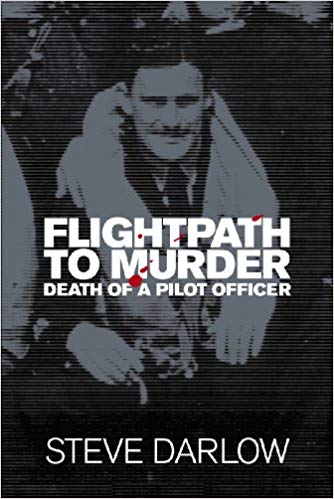I am currently adapting my book Flightpath to Murder as a stage play called Coup de Grace.
Synopsis
In September 1944 a young Allied fighter pilot force-lands his damaged aircraft deep into hostile enemy territory. He survives the crash but minutes later his life is brutally ended. Ten months on and the European war is over. Germany’s defeat is total. The Allied forces occupying Hitler’s shattered Fatherland have to re-establish some sort of order from the chaos and ruin. Deemed essential is the bringing to justice those who had perpetrated war atrocities, to ‘pursue them to the uttermost ends of the earth’, and, ‘deliver them to their accusers in order that justice may be done’.
Captain Robert Drake has been in action with the British Army since coming ashore on the Normandy beaches in June 1944. He, along with his second-in-command and friend Brian Forrest, has seen men under his command lose their lives as their unit fought its way through Nazi occupied Europe to Germany. With the war over Drake is keen to return home and his family solicitor firm, but he is persuaded to remain in Germany and become a war crimes prosecutor.
Meanwhile a team of Allied war crime investigators visit a German cemetery to exhume and examine the decomposing corpse of an Allied airman. The visible and ghastly damage to the body suggests foul play. Identification of the airman proves problematic and an investigation opens to piece together the last moments of the pilot’s life. What was the cause of death? Had a war crime been committed and should someone be held accountable? Eventually they have enough evidence in the ‘Arden’ case to bring forward a prosecution.
‘Coup de Grace’ tells the story of Robert Drake’s attempt to prosecute those deemed responsible for the murder of the Allied pilot. Who exactly was responsible and what had turned them into killers? Why had a man described as, ‘a tender father who as a good Christian disliked every violent action’ become a murderer in cold blood? Do the perpetrators have the right to due process or should they be found guilty simply because of their association with Nazi brutality? In bringing to justice those accused of the barbaric killing of the Allied pilot Robert Drake must fight with his own conscience and inner feelings, testing both his loyalties and friendships.
Underlying Themes
Robert Drake believes he is an honourable man. He seeks to be moral in his actions, and has witnessed terrible scenes in the war. At the end of the conflict he is tired of the fighting and wants to return home but is persuaded to finish the job and be part of establishing law and order. He believes in applying the law properly but deep inside he can’t help having revengeful feelings, because his sister Stephanie was killed by a Luftwaffe bomb. He has to fight those feelings.
The play touches on the perils of group identity narrative. Grouping people tends to dehumanise the individual, and people are judged on what they represent, a representation that is subjective and open to ideology and propaganda. Judging someone by group identity seriously compromises that right of being innocent until proven guilty. The murdered pilot is not just a young lad, he is seen by the perpetrators as a terrorflieger, and therefore guilty – he’s not judged on his individual actions. The German sniper is seen by Forrest as merely a Nazi, therefore immediately guilty in his eyes. The perpetrators of the murder are, to some people, guilty because of what they represent. Robert Drake tries to fight this thinking, but deep down he desires to avenge the killing of his sister.
(There is a resonance to recent events. For example with regard the Windrush scandal. A hostile environment resulting in individuals being grouped into perceived illegal immigrants and their individual circumstance ignored. A state policy, carried out in ignorance (the character Reinhardt), officiousness (Brand), and hostility (Pohlmann).)
The war crime and court case element of the play is based upon an actual incident – the Elten lynching case – as told in the book ‘Flightpath to Murder’.
